NOTE: This post is part of a continuing series of observations: [ First | << Prev | Next >> ]
It is thought that that the eagles began setting eggs in this nest on or around January 24, 2014. If we give the Bald Eagles a 35 day incubation period, then it becomes likely that this would be the week that the eggs should hatch.
So, did we observe any evidence that we now have eaglets? I think maybe we did. Unfortunately, we did not actually see baby eagles this time out, so it maybe a week or two longer before we can verify absolutely.
Here is what we saw this week:
We arrived early on the morning of March 1. There was a heavy fog in the area, but the promise was that it would burn off while the day was still young.
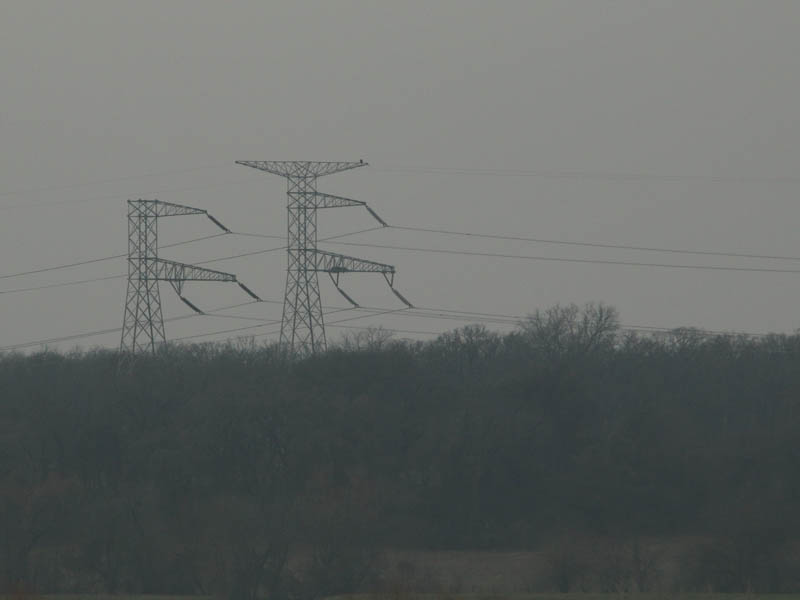
We observed the transmission towers from a mile away and could see one eagle perched at the top. The other was surely on the nest. We decided then that our best course of action would be to kill sometime and give the fog a chance to dissipate. We wanted to make sure we had plenty of good sunlight for our photography session.
Luckily we did not have to wait long for the sun to start peeking through the low cloud cover, and as we moved into position and set up our cameras an eagle came to the nest tower and landed near the top.
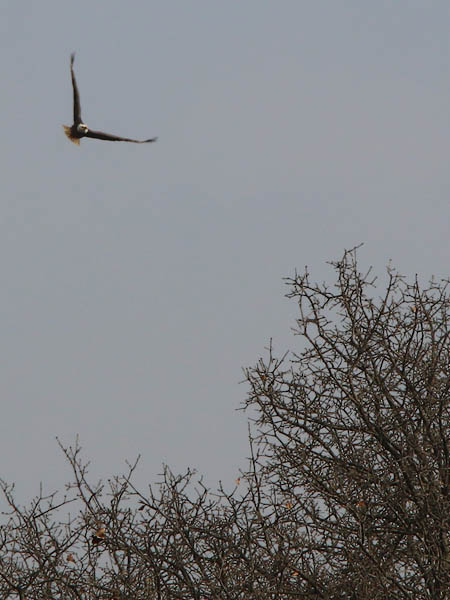
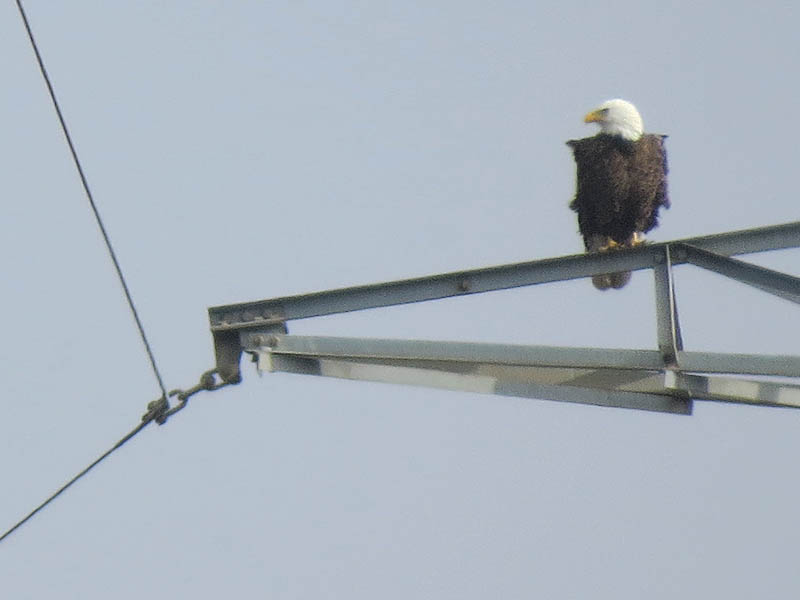
The other eagle was on the nest, and interestingly was sitting up much higher than in past weeks and easily visible. This change in position, I think, is our first bit of evidence that something has changed at the nest.
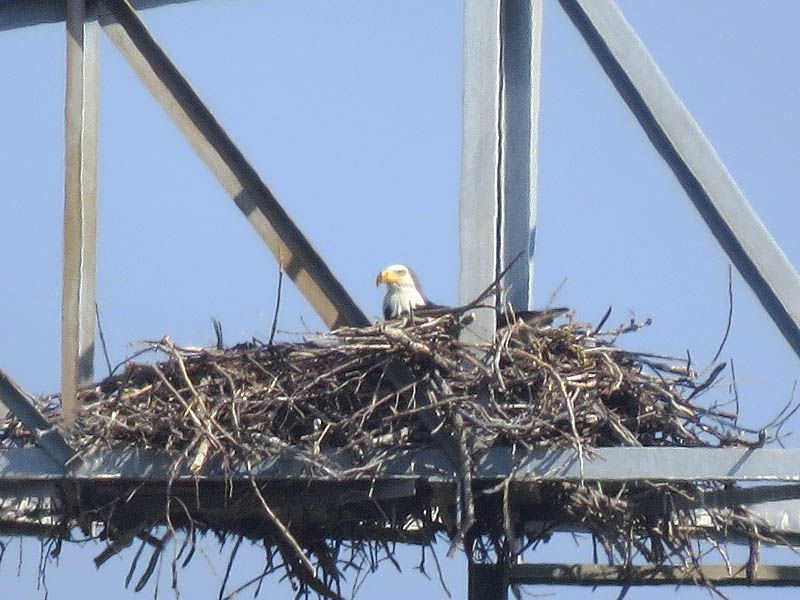
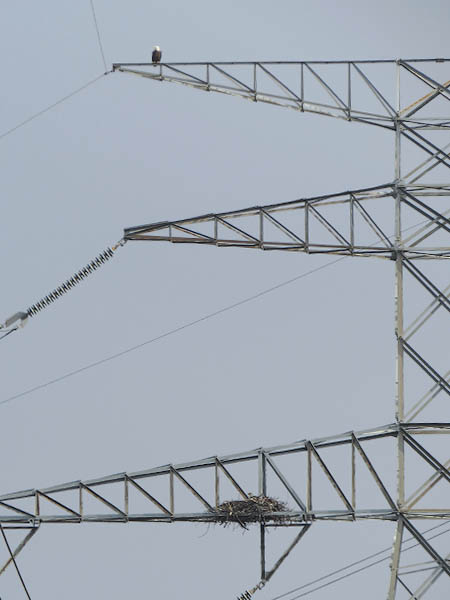
The eagle at the top of the transmission tower did not stay long. He took off and flew away to the south. I have never seen either of the adult eagles leave the nest in this direction before.
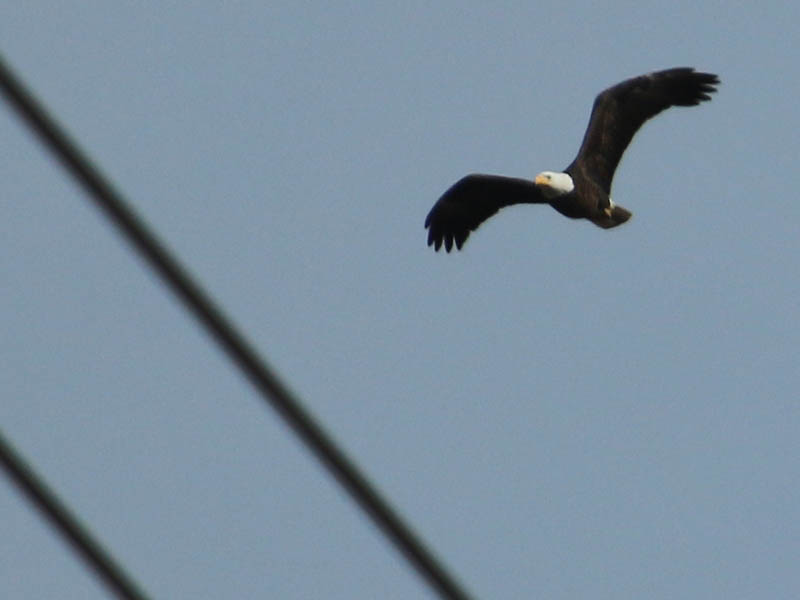
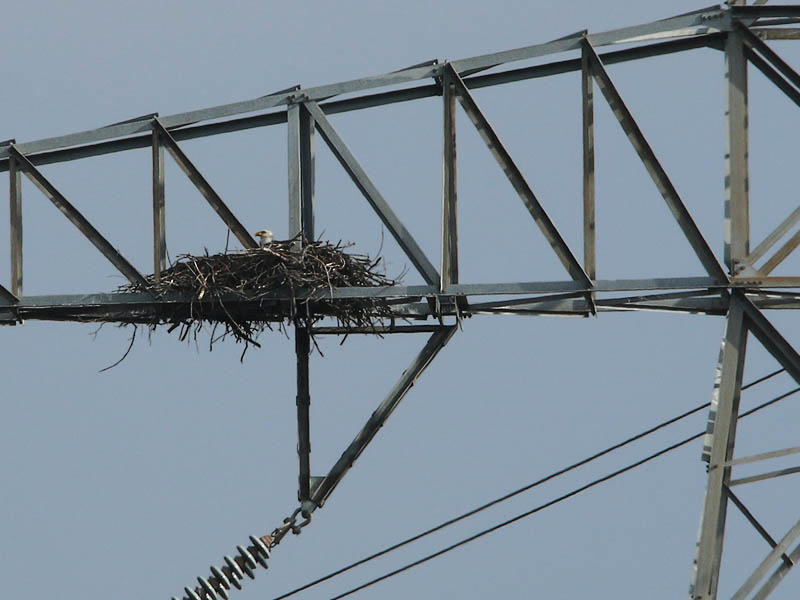
This eagle was gone for nearly an hour before we saw him again. At approximately 10:30am he returned to the tower, did a high altitude flyby, and then continued on to the north. He soon disappeared from view somewhere over the wetland center.
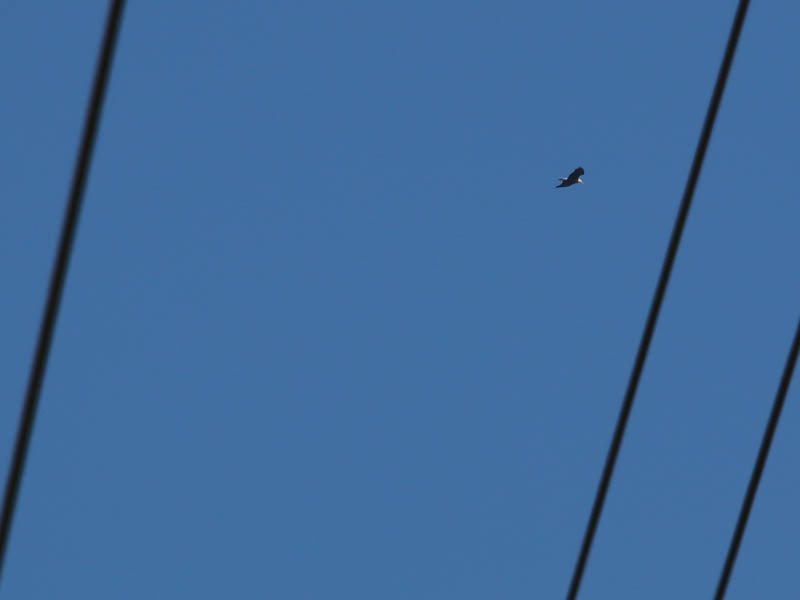
Thirty minutes later he was back, and this time he landed on the nest. It appears that he returned with some kind of prey item, but unfortunately we did not see what it was that he brought back to the nest.
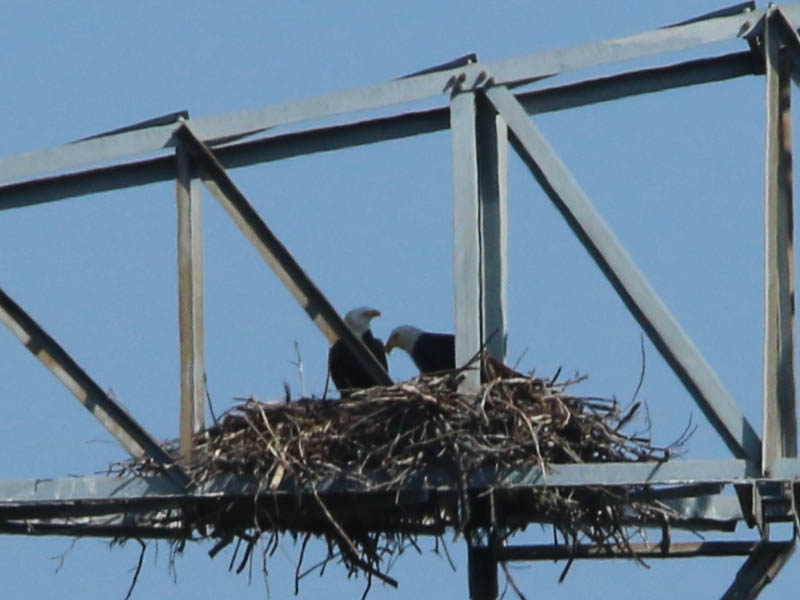
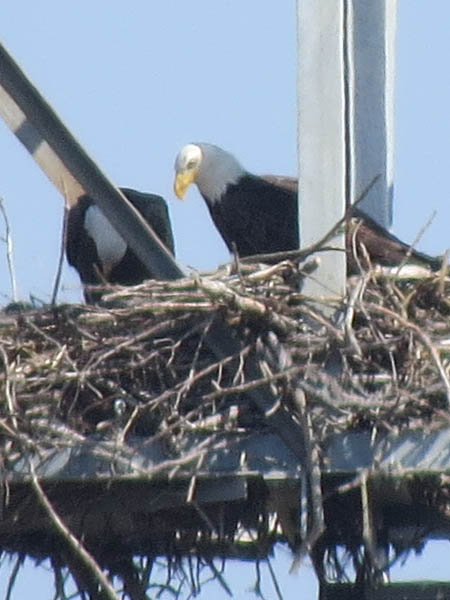
The setting eagle wasted no to surrendering the nest to her relief. She launched into the air and flew away to the east.
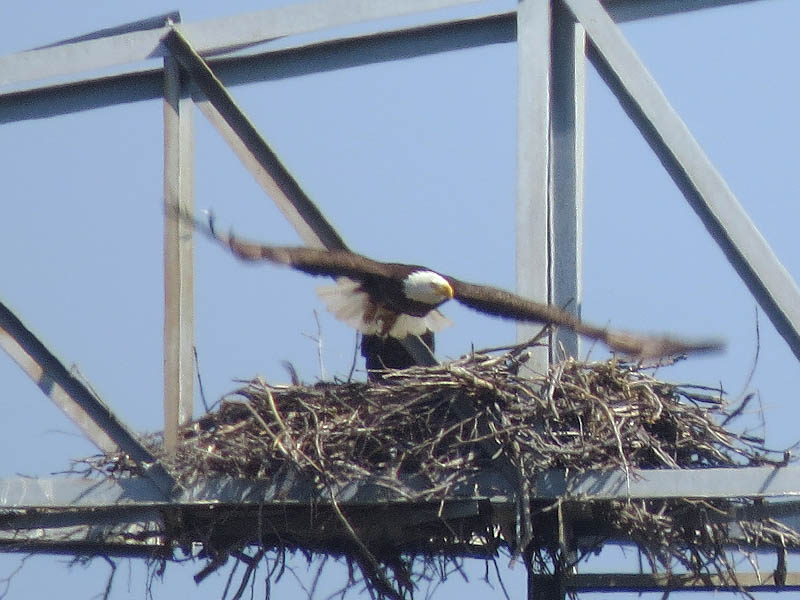
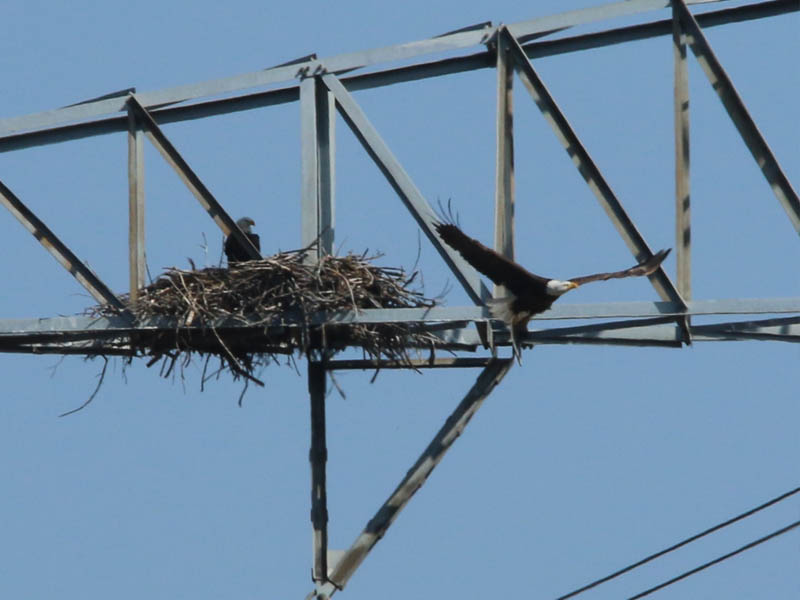
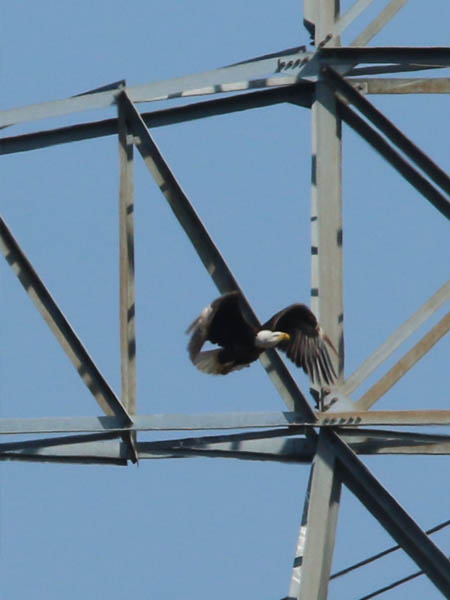
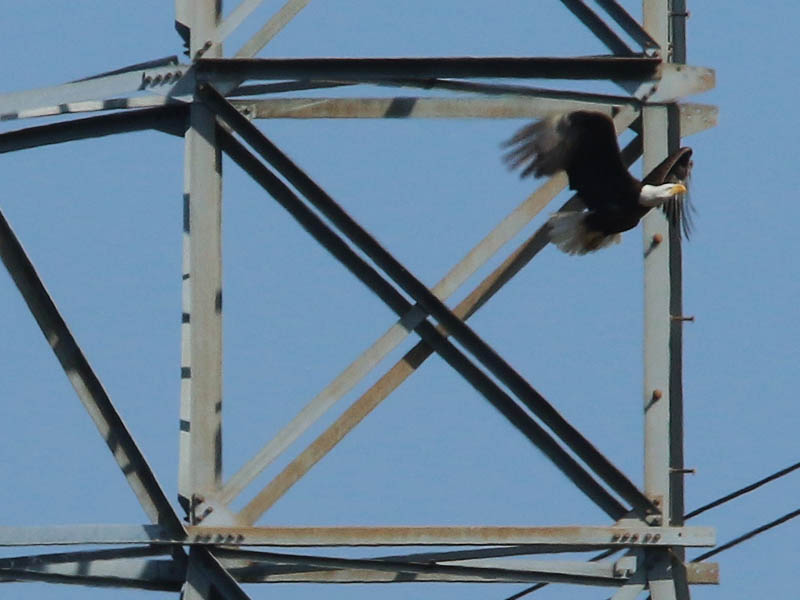
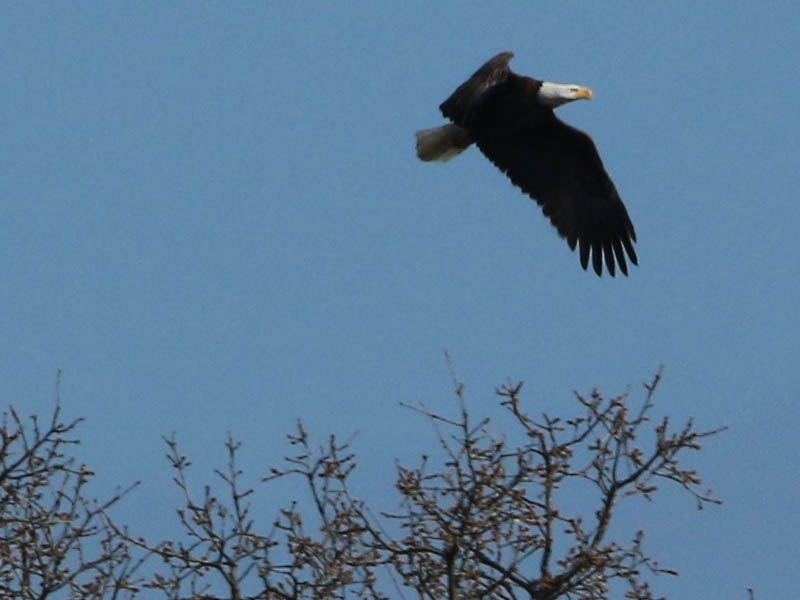
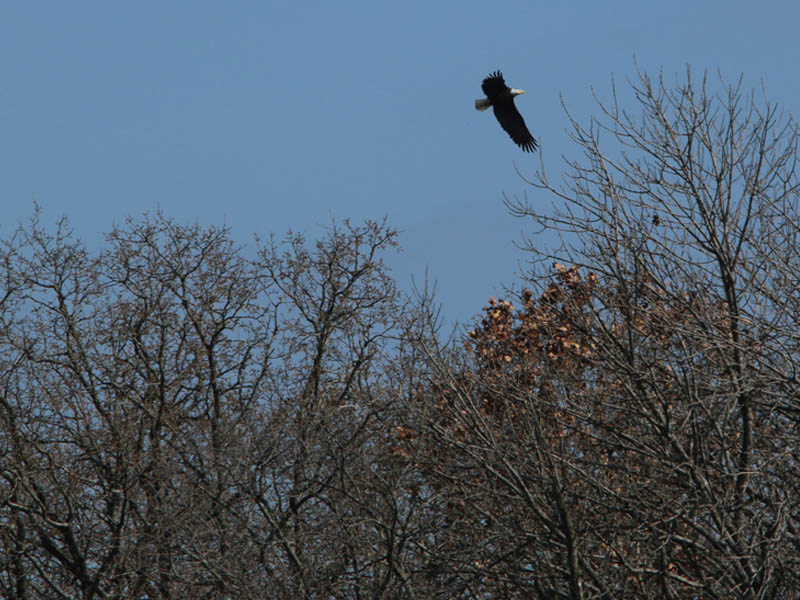
Back on the tower the other adult eagle shifted his position closer to the center of the nest and then started picking and plucking at something at his feet. After each pick or pluck the eagle would lower his head into the dish of the nest for a moment, and then lift his head upright for a quick look around. This behavior was repeated over and over again as we watched.
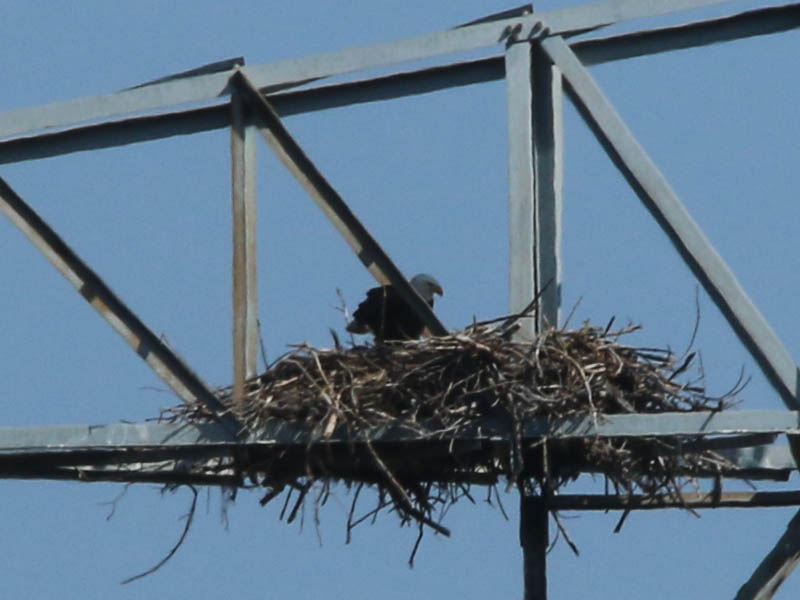
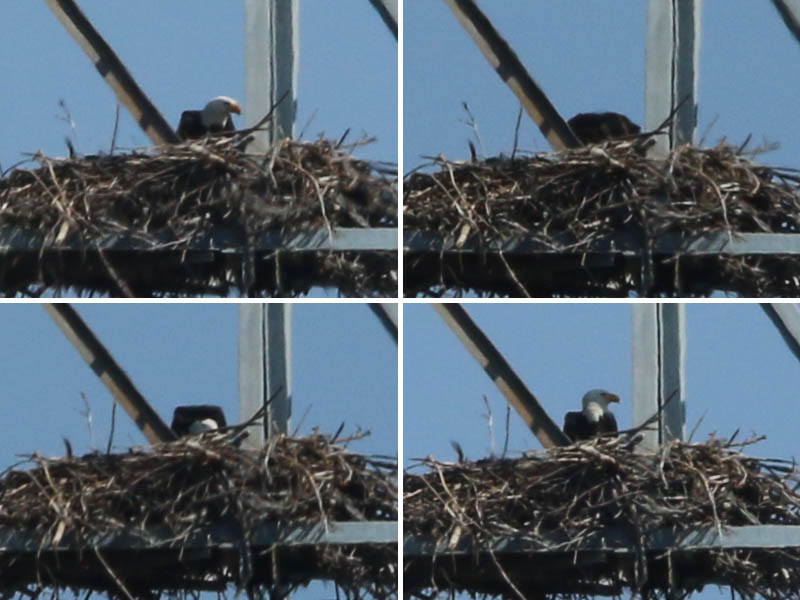
I am inclined to interpret this behavior as the adult eagle feeding some very small eaglets. It is likely that he was feeding them a fish of some kind as no fur or feathers were released during the session.
Hopefully, we will be able to see a little more next weekend. Baby eagles grow very fast, so it will not be long before we get our first look at them!
NOTE: This post is part of a continuing series of observations: [ First | << Prev | Next >> ]


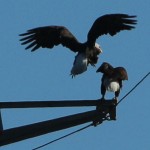
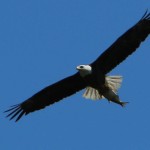
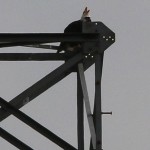
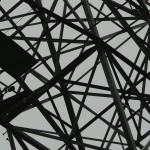
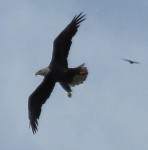
How wonderful and how sacred Wanbli pesla pro: wambli peshla is the Lakota name for the Bald Eagle. Thanks for sharing